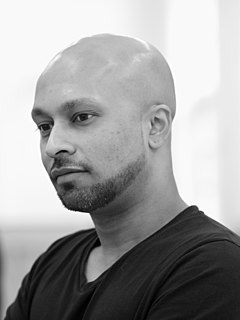A Quote by Robert M. Sapolsky
The frontal cortex is an incredibly interesting part of the brain - ours is proportionately bigger and/or more complex than in any other species.
Related Quotes
We are like a rider on top of a gigantic elephant. We can steer the elephant, and if he's not busy, he'll go where we want, but if he has other desires, he'll often go where he wants. How can one control the elephant? In part, this comes with maturity. In part, this comes with the development of your frontal cortex, so the frontal areas of the brain are especially involved in self-control, in suppressing your initial instinct to act. This is why teenagers are so impulsive. So it's terrible to allow the death penalty for teenagers, because they really don't have working brains yet.
The unpredictability of the weather, the increasing possibility of intelligence introducing a species more powerful than ours, the growing uncertainty that animals can or should be slaughtered for our pleasure, has led many of us to start asking more complex questions about what is and isn't normal.
When you sleep your eyes move left and right and physical movement takes trauma and moves it from your frontal lobe to the back of your brain or to another part of the brain where you can store it that memory but when you think about those things that happened, you don't associate the feeling that normally comes with it. So the problem is if you have something traumatic happen and you are not getting a good amount of rest, it will stay in your frontal lobe.
We live in the Age of the Higher Brain, the cerebral cortex that has grown enormously over the last few millennia, overshadowing the ancient, instinctive lower brain. The cortex is often called the new brain, yet the old brain held sway in humans for millions of years, as it does today in most living things. The old brain can't conjure up ideas or read. But it does possess the power to feel and, above all, to be. It was the old brain that caused our forebears to sense the closeness of a mysterious presence everywhere in Nature.
Tolkien, who created this marvellous vehicle, doesn't go anywhere in it. He just sits where he is. What I mean by that is that he always seems to be looking backwards, to a greater and more golden past; and what's more he doesn't allow girls or women any important part in the story at all. Life is bigger and more interesting than The Lord of the Rings thinks it is.
A diverse ecosystem will also be resilient, because it contains many species with overlapping ecological functions that can partially replace one another. When a particular species is destroyed by a severe disturbance so that a link in the network is broken, a diverse community will be able to survive and reorganize itself... In other words, the more complex the network is, the more complex its pattern of interconnections, the more resilient it will be.




































